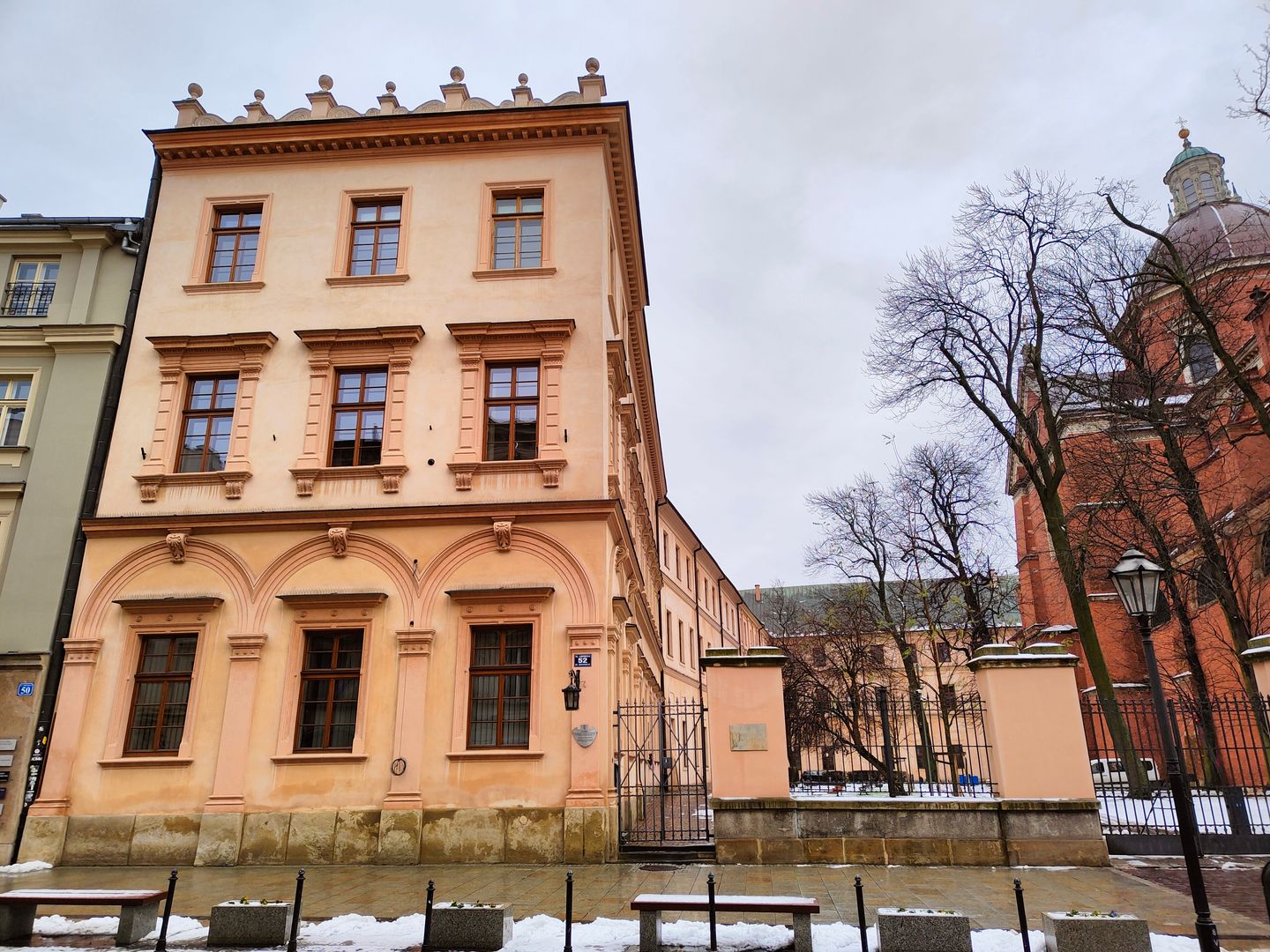Collegium Broscianum of the Jagiellonian University
6.21

Overview
Collegium Broscianum is a building of the Jagiellonian University located at 52 Grodzka Street in Kraków, housing the institutes of philosophy, sociology, religious studies, and the Department of Comparative Civilization Studies. Its history dates back to the late 16th century when the Society of Jesus began constructing the complex. In 1595, the Jesuits acquired the land from Senator Joachim Ocieski with the support of Piotr Skarga, and in 1623, they opened a humanities school there, which met with resistance from the Kraków Academy. Over the following years, rivalry with the university intensified, culminating in 1634 when the college was closed by order of the pope and the king.
For many years, the Collegium Broscianum building had no permanent purpose. In the 18th century, after the dissolution of the Jesuits, it became the property of the Commission of National Education. From 1774, it was used as a shelter for former Jesuits and later served as quarters for offices, schools, and courts, undergoing numerous renovations. In 1846, a new wing was added. In the 20th century, the building continued to serve judicial institutions, and during World War II, it housed German institutions. After the war, until 1971, Polish courts were located here.
In 1970, Collegium Broscianum was handed over to the Jagiellonian University, which began relocating various institutes there. The building was named in honor of the Kraków mathematician Jan Brożek. Renovations were carried out, which revealed the presence of carcinogenic mold due to dampness. In 1980, the Independent Students' Association was established at Collegium Broscianum, and the Kraków Academic Choir also found its home there. An important feature of the building is a hall named after the Polish philosopher Izydora Dąmbska. Collegium Broscianum, not only an educational venue but also a significant historical and cultural element of Kraków, reflects the quality and development of Polish intellectual life over the centuries.
Location
Tickets
Powered by GetYourGuide
2026 Wizytor | All Rights Reserved